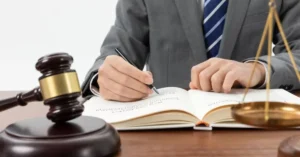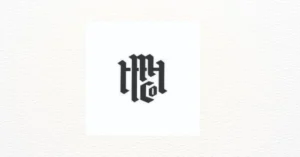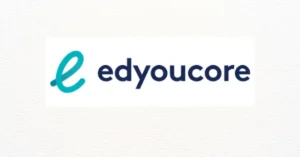In today’s hyper-connected world, most of us live with our smartphones perpetually in hand. We use them for work, communication, entertainment, banking, and security. But this convenience also opens the door to persistent robocalls, spam, and unfamiliar numbers flashing on the screen without context. One number that has prompted many questions across the country is 8884216488.
If you’ve received a call from this number, you’re not alone. But what does it mean? Who is on the other end of the line? Is it a scam, a legitimate business, or something in between? In this detailed guide, we’ll explore what 8884216488 typically signifies, how to deal with it, what your rights are, and why calls like this are part of a growing trend in digital communications.
Why Numbers Like 8884216488 Matter Now
Unfamiliar numbers have always created a degree of uncertainty. But today, the stakes are higher. We rely on phone-based authentication to protect bank accounts and emails. We book appointments, respond to job inquiries, and confirm prescriptions—all over the phone. So, when a number like 8884216488 appears on our screens, not answering can feel like a risk. But answering may feel equally risky.
This tension—between responsiveness and protection—defines the modern phone experience. And numbers like 8884216488 are emblematic of that.
Is 8884216488 a Toll-Free Number?
Yes. The “888” prefix is part of a block of toll-free numbers in North America, which also includes 800, 833, 844, 855, 866, and 877. Toll-free numbers were originally designed for businesses to allow consumers to call them without incurring charges.
But this system, while helpful, has been increasingly exploited by spam operations and robocallers using spoofed numbers or recycled toll-free lines.
Who Might Be Calling From 8884216488?
Based on behavior reported by thousands of mobile users across various online platforms, 8884216488 is typically associated with debt collection services, customer support callbacks, or telemarketing. In some instances, recipients report the number being linked to collection efforts on behalf of third parties—like credit card companies, telecom providers, or hospital billing departments.
That doesn’t automatically mean the call is legitimate—or illegitimate. It simply reflects a pattern.
Commonly Reported Scenarios:
- Calls about outstanding utility bills
- Verification of a missed payment or billing discrepancy
- Attempts to collect on older debts that have changed agencies
- Generic “we need to reach you” messages without specific account info
If you’ve recently missed a bill or changed your phone number, you might be the target of such outreach.
Red Flags to Watch For
There are clear indicators that a call from 8884216488 may be spam or a scam:
- Request for sensitive data: If the caller asks for your full Social Security number, bank details, or password, hang up.
- Urgency or threats: Phrases like “your account will be suspended today” or “legal action will begin immediately” are warning signs.
- No identification: Reputable companies clearly state their name, agent ID, and the reason for calling.
It’s worth remembering: Legitimate debt collectors are required by law to provide validation of debt.
What the Law Says About Calls Like This
The Telephone Consumer Protection Act (TCPA) and the Fair Debt Collection Practices Act (FDCPA) govern how companies can legally contact you:
- You can ask them to stop calling, and they must comply.
- They must identify themselves and your creditor (if applicable).
- You can request a debt validation letter in writing.
These laws protect you from harassment, but only if you know how to use them.
Steps to Take If You Receive a Call from 8884216488
Step 1: Don’t Panic
Unknown numbers are annoying, but rarely dangerous if you don’t engage recklessly. Simply receiving a call is not a threat.
Step 2: Let It Go to Voicemail
If the caller leaves a message, listen closely. Note the company name, the callback number, and the reason for the call.
Step 3: Research the Number
Use search engines or caller ID apps to check if others have reported it. Sites like 800Notes, WhoCallsMe, or community-driven spam trackers often flag known scam numbers.
Step 4: Do Not Share Personal Information
Never confirm your full name, address, account numbers, or date of birth over the phone with unverified callers.
Step 5: Call Back Using Official Channels
If the voicemail mentions a company you recognize—say, your cable provider or bank—call the official number on your bill or website, not the one left in the message.
Step 6: Block and Report
If you determine the number is a scam or unsolicited telemarketing, block the number and report it to:
- The FTC’s Do Not Call Registry
- Your mobile carrier’s spam reporting service (e.g., AT&T’s Call Protect, Verizon’s Call Filter)
- The Better Business Bureau if a company was impersonated
Why You’re Getting These Calls in the First Place
You may have received this call because:
- Your number is recycled from a previous owner with debts
- You applied for a service or job that shared data with third-party vendors
- Your contact information was part of a data breach
- Your number is part of a public database or auto-dialer
Unfortunately, even being cautious online does not fully protect against robocalls and collection calls.
Can You Block 8884216488 Permanently?
Yes, but the efficacy depends on your phone’s settings and carrier tools. Here’s how:
iPhone
- Open your Phone app → Recent Calls
- Tap the info (i) icon next to the number
- Select Block this Caller
Android
- Open the Phone app → Recents
- Long-press on the number
- Select Block / Report Spam
Carrier Services
- AT&T: Use Call Protect
- Verizon: Use Call Filter
- T-Mobile: Use Scam Shield
These apps may auto-block known nuisance numbers like 8884216488 based on crowdsource reports.
How Companies Use Toll-Free Numbers Like 8884216488
Not all toll-free calls are nefarious. Businesses use toll-free numbers to:
- Provide customer service
- Run support callbacks
- Send fraud alerts
- Confirm recent activity on accounts
In some cases, you may have interacted with a business online or over email, and they followed up by phone—triggering a call from a number you don’t recognize.
Example:
You dispute a charge on your credit card. A fraud analyst calls back, but it shows as 8884216488. If you didn’t expect the call, you might assume it’s spam.
This underscores the importance of verifying context before blocking.
Should You Ever Answer?
It depends. If you’re waiting for:
- A medical provider’s callback
- Tech support
- Customer service follow-up
…then answering may make sense. Just proceed cautiously. Ask for caller identification, and never respond to prompts like “Press 1 to confirm your account.”
Final Thoughts: Navigating Phone Calls in the Post-Privacy Era
The appearance of 8884216488 on your phone screen may trigger anxiety, confusion, or outright annoyance. That reaction is reasonable—but it shouldn’t be paralyzing. In the post-privacy era, vigilance is the new norm.
Take the call if you choose—but do so armed with the knowledge of your rights, red flags, and practical protections. In the battle between accessibility and safety, information remains your best defense.
For more information, click here.









